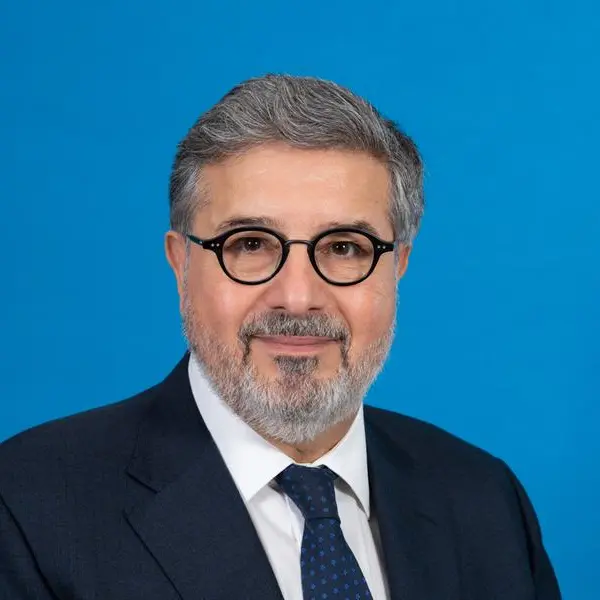PHOTO
Riyadh, Saudi Arabia – Building on previously announced reforms under Vision 2030 and the National Investment Strategy, the Council of Ministers has approved an updated investment law for Saudi Arabia.
The updated law brings together several existing freedoms and rights and expressly applies them to investors under one unified framework, providing investors with greater transparency, flexibility and confidence.
The updated law is based on international investment principles including:
- Enhanced investor rights: Investors will be afforded the rule of law, fair treatment, property rights, intellectual property protection and the freedom to manage investments and seamless fund transfers.
- Transparency and clarity: The updated law brings together the rights and duties of investors under a unified legal framework, aligned with international best practice.
- Eased regulatory restrictions: A simplified registration will replace international investor licensing.
- Streamlining procedures and governance: Through dedicated service centers to facilitate government transactions and streamline investment processes.
- Fair competition: The law fosters a fair and competitive market where private enterprises can thrive in a dynamic and innovative ecosystem.
- Leveling the playing field: Equal procedural treatment without prejudice to domestic or international investors.
- Effective dispute resolution: Access to the best-in-class dispute resolution in affiliation with Saudi Arbitration Centre and other affiliates.
The update, in conjunction with Saudi Arabia’s comprehensive reform agenda, offers investors unprecedented opportunities, demonstrating Saudi Arabia’s commitment to being open for investment, even amid a global decline in FDI.
According to the World Investment Report 2024, published by UN Trade and Development, pro-investment measures have accounted for less than half of the new investment policies introduced by advanced economies in each of the last six years.
The pro-investment measures introduced by Saudi Arabia in recent years include the introduction of the Civil Transactions Law, Private Sector Participation Law, Companies Law, Bankruptcy Law and Special Economic Zones.
These initiatives and developments, in addition to incentives, facilities, and enablers, have motivated investors to seek a positive, supportive, and stable investment environment.
They have also helped to drive rapid investment growth, with gross fixed capital formation increasing by 74% from 2016 to nearly $300bn in 2023, and FDI inflows by 158%, from $7.46bn in 2017 to $19.3bn in 2023.
His Excellency Khalid Al-Falih, Minister of Investment said, “the law reaffirms Saudi Arabia’s commitment to creating a welcoming and secure environment for investors, driving economic growth, and enhancing the Kingdom’s position as a premier global investment destination.”
“The policy direction outlined in Vision 2030 allows investors to invest with certainty and to grow with confidence at a time when many other markets are experiencing considerable volatility.”
“The updated investment law builds on an extensive diversification agenda from an enhanced quality of life offering to investment specific measures such as the establishment of special economic zones.”
Developed by the Ministry of Investment of Saudi Arabia (MISA), the updated law follows an extensive consultation process investors and in line with global best practices.
The law is also compatible with Gulf Cooperation Council (GCC), World Trade Organization (WTO) and other bilateral investment treaties and international obligations.
The executive regulations will come into effect beginning in 2025.
Further information on the updated investment law can be found via: https://investsaudi.sa/en/resources/updatedInvestmentLaw
-Ends-
Media Contact: misa@consulum.com
About the Ministry of Investment
The rapid economic growth and diversification of Saudi Arabia’s economy under its Vision 2030 economic growth and diversification blueprint is unlocking foreign direct investment (FDI) opportunities at an unprecedented pace. The Ministry of Investment of Saudi Arabia (MISA) is facilitating access to these opportunities by nurturing a vibrant cross-government investment ecosystem.
MISA coordinates across the Saudi government to create a competitive investment environment that provides stability and clarity for investors. It does so by spearheading business friendly policies and regulatory reforms, creating investment incentives, facilitating investment data, opening investment opportunities across diverse sectors, and supporting Saudi companies to partner with and attract investment from foreign counterparts.
MISA is also responsible for overseeing the implementation of Saudi Arabia’s National Investment Strategy (NIS), an ambitious plan launched in October 2021 to make private sector investors – both local and international – true partners in development, with state investment helping to de-risk, enable and ‘crowd-in’ investment.
For more information on MISA, please visit our website or connect with #MISA on Twitter and LinkedIn.
About Invest Saudi and the Saudi Investment Promotion Authority
The Saudi Investment Promotion Authority (SIPA) is the entity responsible for attracting foreign direct investment into the country. As the primary contact for investors, SIPA provides essential information and comprehensive support to streamline the investment process in the Kingdom. On our Invest Saudi platform and through more than a dozen representative offices around the world, Saudi Arabia communicates exciting investment opportunities across sectors including:
- Agriculture & food processing
- Chemicals
- Energy
- Real estate
- ICT
- Healthcare & life sciences
- Financial services
- Environment services
- Transport & logistics
- Human capital innovation
- Industrial & manufacturing
- Mining & metals
- Pharma & biotech
- Tourism & quality of life
- Aerospace & defense
For more information on Invest Saudi, please visit our website or connect with #InvestSaudi on Twitter and LinkedIn.


















